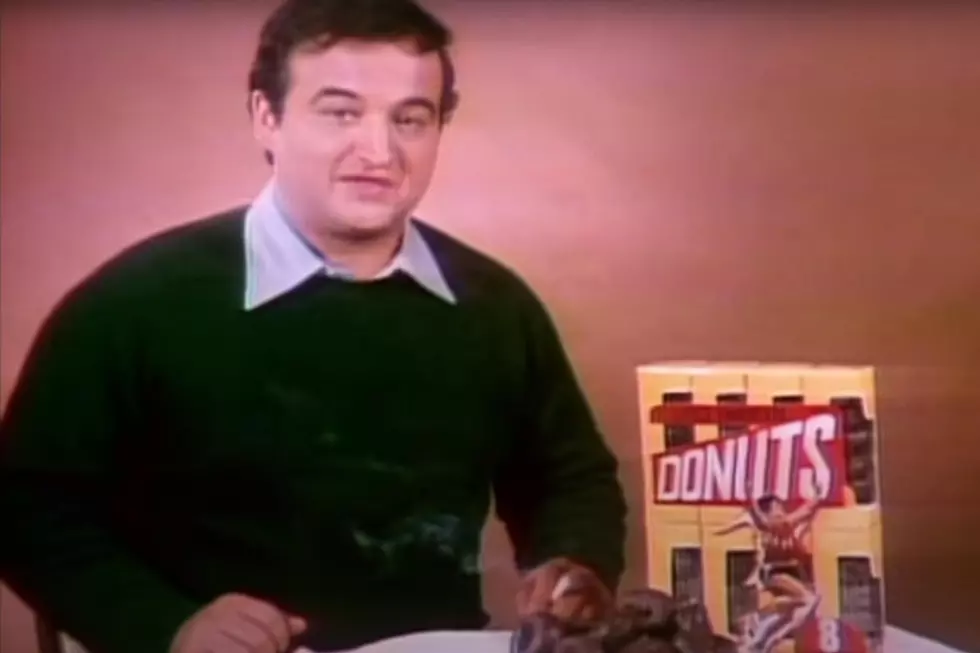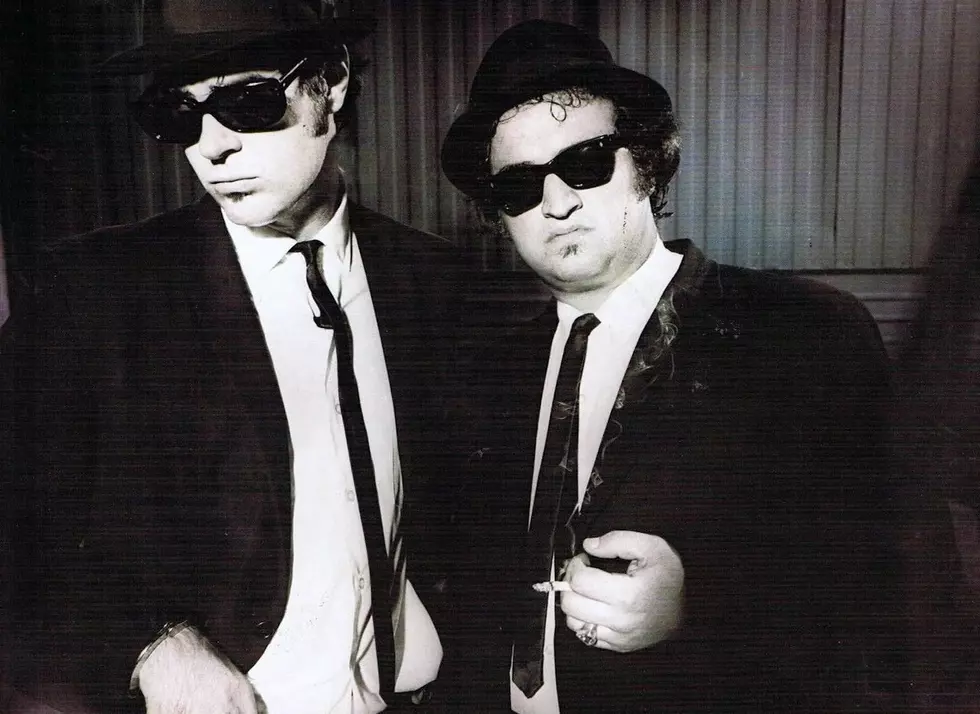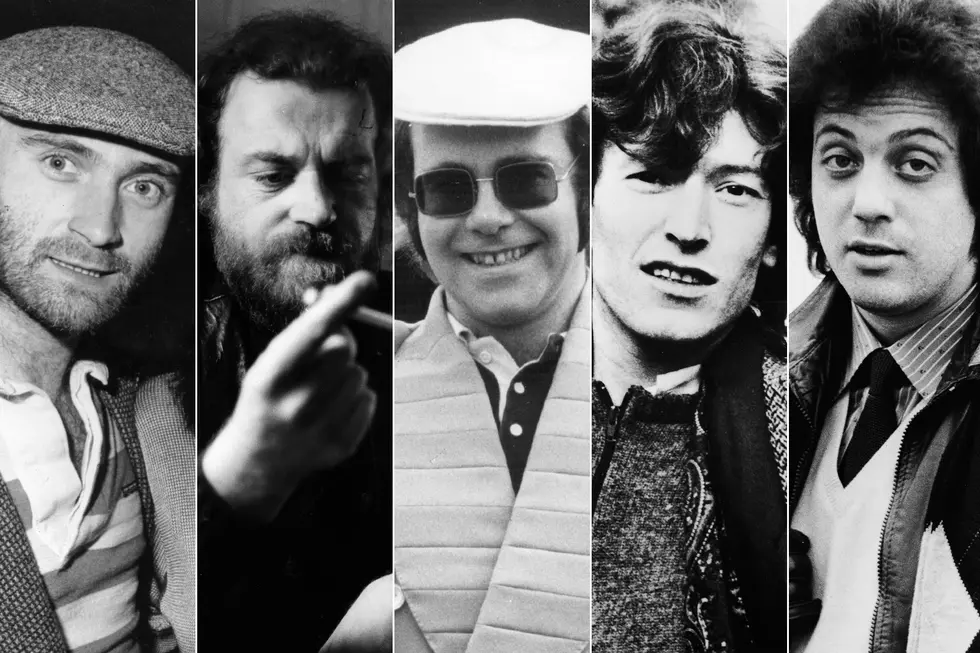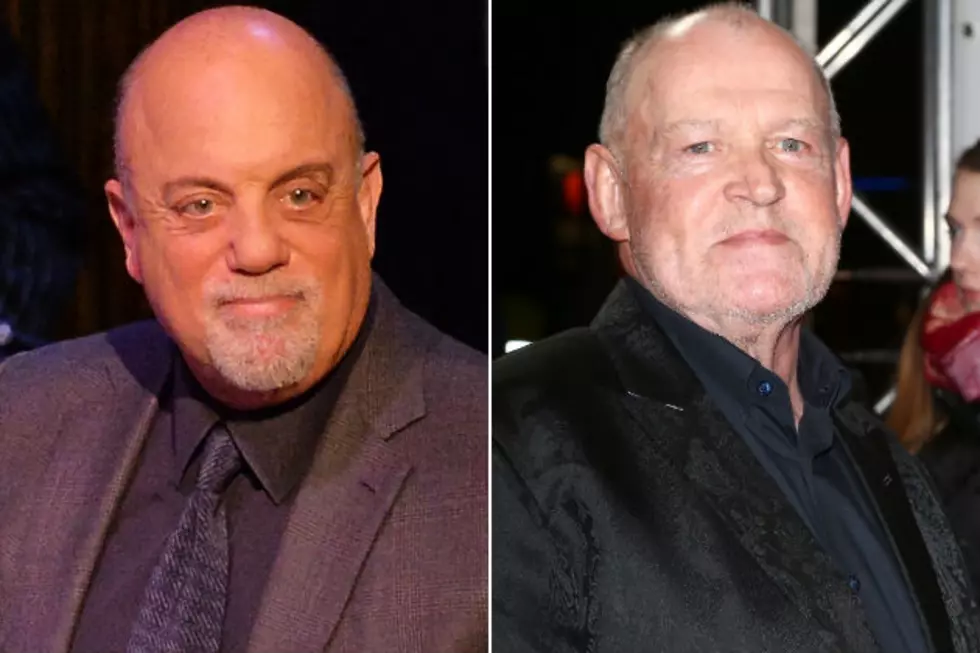
When Joe Cocker Joined John Belushi on ‘Saturday Night Live’
Joe Cocker's recording career was in a bit of a lull in 1976, with his most recent release, Stingray, stalled at No. 70 on the U.S. chart. But he was still one of the most eagerly anticipated musical guests in Saturday Night Live history when he booked an Oct. 2, 1976, appearance as the show's musical guest – and all because of John Belushi.
By the time he walked onto the SNL set, Cocker had already been through a career's worth of ups and downs. Although he'd gone gold with his first two solo LPs in 1969 and enjoyed what seemed like a comeback hit in 1974 with "You Are So Beautiful," he'd been dogged by personal and label problems along the way, as well as an infamously voracious appetite for controlled substances. Although he'd score single hits repeatedly over the next couple of decades, as an album artist, he'd never really achieve the level of success he seemed destined to reach early on.
Still, no matter how inconsistent or poorly promoted those records ever got, nobody sang like Cocker – and nobody acted like him on stage, either, making his distinctively soulful howl and spastic movements an easy target for parodists who didn't mind getting an easy laugh by getting up on stage and flailing around for a few minutes. The best of the bunch was undoubtedly SNL star John Belushi, who'd started perfecting his Cocker act years before the show debuted – as you can see below, in a 1973 clip that captures Belushi performing "Lonely at the Bottom" with Chevy Chase on drums.
With Belushi a breakout SNL star during the show's first season, producer Lorne Michaels was eager to take advantage of his faux Cocker's uncanny similarity to the real thing. The third episode didn't have a musical guest, but host Rob Reiner was familiar with Belushi's Cocker bit from the comedian's days with the National Lampoon's Lemmings troupe, and requested that he deliver a performance of "With a Little Help From My Friends"; Belushi obliged, offering an incredible rendition that culminated in an onstage meltdown.
Watch John Belushi Imitate Joe Cocker in 1973
As he'd later demonstrate with the Blues Brothers, Belushi was capable of belting out pretty soulfully himself, which was at least half of what made his Cocker impression so much fun to watch (the other half being, of course, his willingness to roll around and fall off the stage). Cocker himself later admitted to Rolling Stone that he didn't know who he was really hearing at first, saying, "I thought John was lip-syncing it, just for a few bars."
Although he'd obviously worked hard on the routine and knew it would get laughs – and it had started to really increase his notoriety, as a producer later noted when he recalled that Paul McCartney invited Belushi to sing as Cocker at the former Beatle's birthday party – Belushi was also somewhat conflicted about it. In a 1978 interview with Rolling Stone, he squirmed when asked about his eventual SNL summit with Cocker.
"It was all rehearsed," Belushi shrugged. "I asked him to do it a long time before. It was just, uh ... the answer ... uh ... I don't know why I did it. It was very emotional. Don't ask me why I did it."
Not that it bothered Cocker at all. "I always found it quite amusing," he told the Broward-Palm Beach New Times in 2012. "But you have to understand I was a bit of a wreck at the time he was doing all that stuff. I didn't watch much television, so I wasn't aware of it until some guy said, 'There's this guy doing an awful impersonation of you. Sue him.' I thought vocally, he did quite a clever job with it. It put a print on me that kind of stuck to this day. He was quite shy really whenever we did any gigs together. He was almost like a schoolboy. He'd come in the dressing room, just watch everything I was doing."
Watch John Belushi Perform as Joe Cocker on 'SNL'
That much was obvious from their shared performance of "Feelin' Alright" on Oct. 2, 1976, during which Cocker opens the song, followed by an identically dressed Belushi, and the two men set up a sort of shared-tribute feedback loop that transcended parody. It may not have helped Belushi during his Blues Brothers years, when he and partner Dan Aykroyd were accused of mimicking soul performers for profit, but it ably demonstrated his deep affection for singers who had soul (and if you've ever listened to Belushi's cover of Randy Newman's "Guilty," you know he was blessed with a bit of it himself).
And as for Cocker's trademark flailing? It was not, as some suggested, the byproduct of an illness or substance abuse. He simply, as he later told the Guardian, didn't know how else to get the music out.
"I actually saw myself with Eric Clapton – you know, you see all your old stuff on YouTube now – and I was horrified at myself, with my arms just flailing around," Cocker chuckled. "I guess that came with my frustration at never having played piano or guitar. If you see me nowadays I'm not quite so animated, but it's just a way of trying to get feeling out: I get excited and it all comes through my body."
In the days after Cocker's sad passing on Dec. 22, 2014, we're compelled to point out that as an artist, he was obviously so much more than "a raspy-voiced rock star with distinctive moves," as the New York Times put it. Through the sincerest form of flattery, John Belushi demonstrated just how singular Cocker's gift really was – and if his act inspired anyone, then or now, to delve a little deeper into a discography with more than its share of classic songs, it was all worth a few bruised elbows or egos.
Rock's 60 Biggest 'Saturday Night Live' Moments
More From 96.1 The Eagle







![Joe Cocker Dies At Age 70 [VIDEO]](http://townsquare.media/site/42/files/2014/12/120383379.jpg?w=980&q=75)


